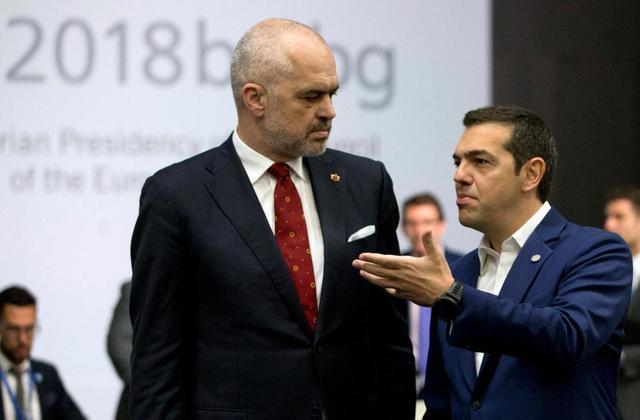EU urges Balkans reform but cool on accepting new members
SOFIA – The Associated Press

European Union leaders encouraged Balkans countries on May 17 to continue on the path of EU-oriented reform but were cool on any of the six joining the bloc in the near future.
The Balkans spiraled into conflict in the 1990s as the former Yugoslavia broke apart and ethnic and nationalist tensions continue to simmer more than 20 years on. Yet the prospect of accession to the EU has been a powerful driver of democratic reform in Albania, Bosnia and Herzegovina, Macedonia, Montenegro, Serbia and its former territory of Kosovo.
Amid a rise in support for far-right parties and populist politicians, divisions have surfaced among the 28 EU countries, particularly on how to manage Europe’s migration challenge, and the political and public appetite for expansion has dwindled.
On top of that, Britain is set to leave the EU next year - the first country ever to do so. That move has shaken the bloc to its foundations and a group of nations led by France insist that the EU must first clean its own house before it invites anyone else in.
“The last 15 years have shown a path that has weakened Europe by thinking all the time that it should be enlarged,” French President Emmanuel Macron told reporters at an EU-Balkans summit in the Bulgarian capital Sofia.
Belgian Prime Minister Charles Michel said that “Europe must be deeply reformed to function better, to be more efficient, and at the same time the Balkans countries have to reform their ways of functioning; more stability, more security, more respect for the rule of law.”
The EU welcomed in 10 mostly Eastern European nations in 2004, then Bulgaria and Romania three years later. Croatia was the last country to join in 2013.
Newcomers like Hungary and Poland saw their economies boosted by billions of euros in so-called cohesion funds meant to build up their infrastructure, but their leaders now refuse to share the burden of responsibility for sheltering refugees. Brussels is also concerned about moves in both countries that it considers to be undermining the independence of their justice systems.
In a different way, Greek Cyprus highlighted the challenges of inviting in a country whose borders are still in dispute.
The divided Mediterranean island’s member state Greek Cyprus has routinely blocked Turkey’s EU membership talks.
Serbia’s former territory of Kosovo is not recognized by five of the EU’s 28 member countries, and it is quite possible that under today’s EU decision-making processes that Serbia, were it to join, would freeze Kosovo out.
The summit, the first of its kind in 15 years, comes amid EU concern that the volatile Balkans could be thrown into turmoil again and worries that Russia’s influence there is rising.
















